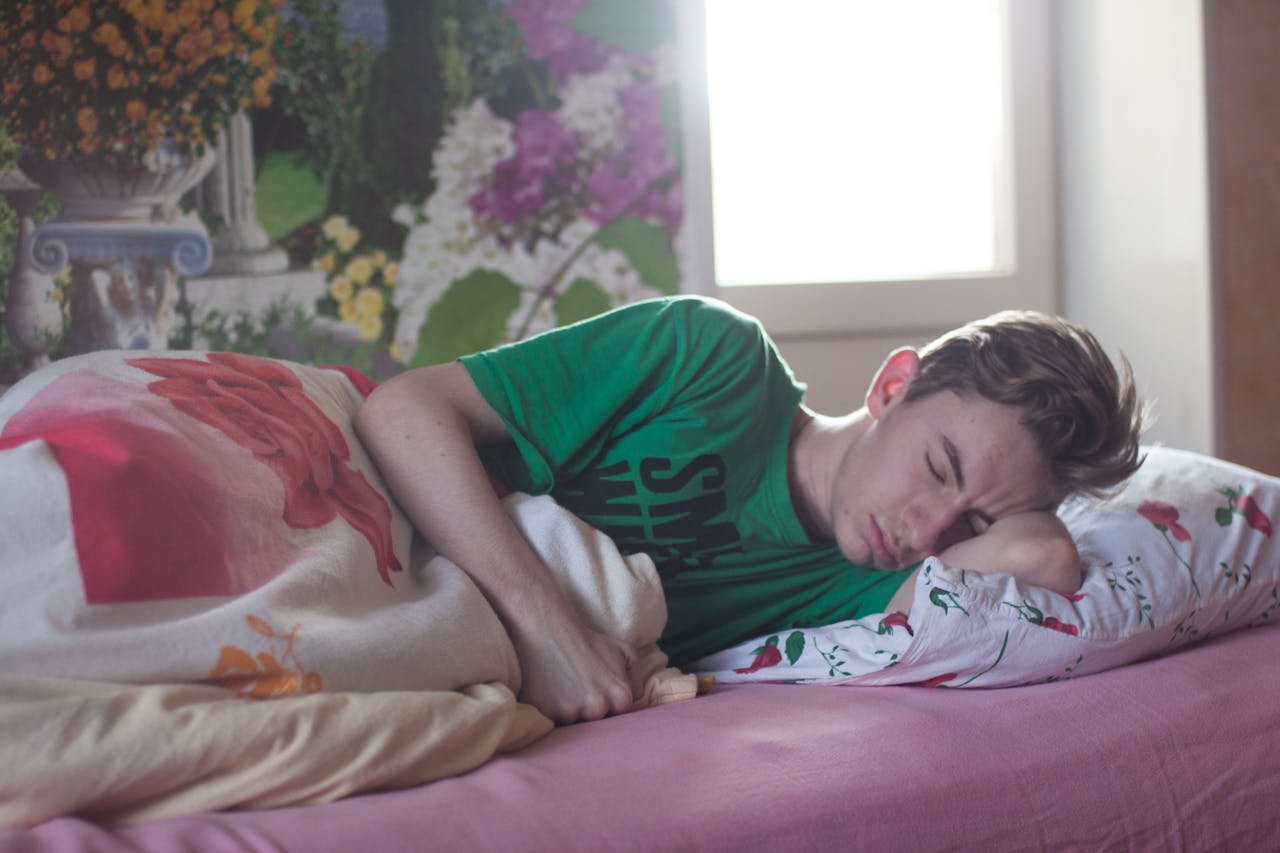If you have ADHD, insomnia is a common struggle. The racing thoughts and restlessness of ADHD can make it incredibly difficult to wind down at night — many adults with ADHD experience significant sleep issues. The very symptoms of ADHD that help you power through the day can make it nearly impossible to power down at night.
But why is there such a strong connection between ADHD and sleep issues? Read on to understand the link between ADHD and insomnia.
The Link Between ADHD and Sleep Issues
 If you have ADHD, you may find it challenging to fall asleep at night and stay asleep. There are a few reasons for this.
If you have ADHD, you may find it challenging to fall asleep at night and stay asleep. There are a few reasons for this.
With ADHD, your brain has difficulties regulating attention and hyperactivity. At night, this means your mind keeps racing with thoughts, making it hard to unwind and relax into sleep. Even if you’re exhausted, your brain just won’t stop buzzing.
People with ADHD tend to be sensitive to stimulation, like light, sound, and physical sensations. At night, little noises, an uncomfortable sleeping position, or the glow of electronics can make it hard to fall asleep.
Many people with ADHD struggle with delayed sleep phase syndrome, where your circadian rhythm is shifted later. You don’t feel tired until very late, making falling asleep at a reasonable hour hard. Sticking to a consistent sleep schedule, even on weekends, and avoiding naps can help reset your body clock.
Some with ADHD also experience anxiety, restlessness, and “inner tension” that interferes with sleep. Relaxation techniques like meditation, deep breathing, and progressive muscle relaxation before bedtime can help calm your mind and body, making it easier to fall asleep.
Common Sleep Problems for People With ADHD
1. Trouble Slowing Down Your Thoughts
At night, your mind is still racing with thoughts, making it nearly impossible to relax into sleep. Your thoughts bounce from one idea to the next, replaying the day’s events or worrying about tomorrow. Trouble concentrating during the day causes unfinished thoughts and tasks to swirl in your head when you’re trying to fall asleep.
2. Difficulty Establishing a Nighttime Routine
Sticking to a consistent bedtime routine is challenging when you have ADHD because of difficulty delaying gratification. You may frequently lose track of time or feel the urge to do one more thing before actually getting into bed. The temptation to keep watching TV, gaming, or browsing the internet can be hard to resist.
3. Restless Sleep and Night Waking
For many with ADHD, the transition to sleep just doesn’t come easily. Your brain has trouble shifting gears from the stimulation and activity of the day to a restful state. Even if you do drift off, you may frequently wake during the night or have restless, unsatisfying sleep. ADHD brains tend to remain in a state of heightened arousal, making deep, restorative sleep elusive. The flip side is that waking up and getting out of bed in the morning is a struggle. Your sleep inertia and scattered nighttime rest make it hard to feel alert and motivated.
4. Sensitivity to Environmental Stimuli
The tiniest noises, lights, or discomforts can make it difficult to fall asleep when you have ADHD. Use white noise, blackout curtains, weighted blankets, eye masks, and earplugs to minimize disturbances. Keep electronics like TVs, phones, and tablets out of the bedroom. Their lights and sounds are too stimulating for sleep.
5. Anxiety and Worry
Many people with ADHD also struggle with anxiety, which can make worries and fears feel magnified at night when you’re trying to sleep. Concerns about tasks left undone or uncertainty about the next day can make it hard to quiet your mind.
If you have ADHD, your sleep is undoubtedly affected in some way. But the good news is there are several things you can do to improve your sleep hygiene and establish a calming bedtime routine. We can help you break this cycle. Book an appointment with us today and learn more about anxiety therapy.